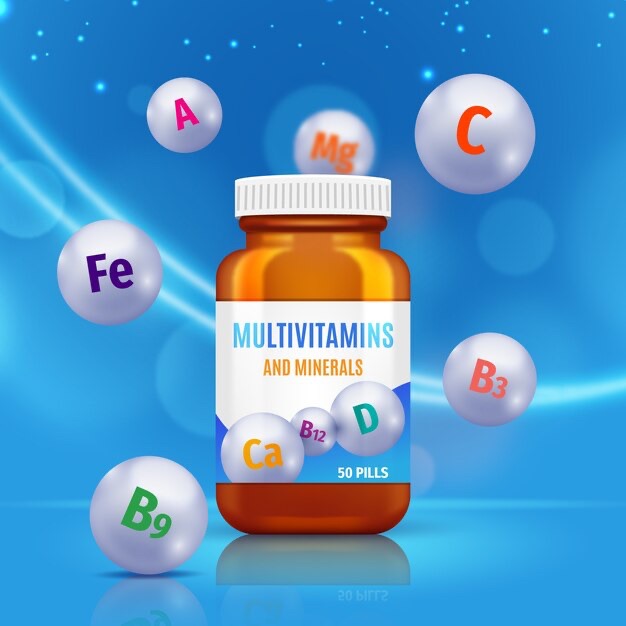Table of Contents
What Are Multivitamins?
The Role of Vitamins and Minerals
Are You Getting Enough Nutrients from Food?
Who Benefits the Most from Multivitamins?
Debunking Myths: Do Multivitamins Prevent Disease?
Risks of Over-Supplementation
Choosing the Right Multivitamin
Alternatives to Multivitamins
The Final Verdict: Do You Need Multivitamins?
Conclusion: Striking the Right Balance

Multivitamins have become a staple in many households, promising to fill nutritional gaps and boost overall health. But do these supplements truly deliver on their promises? Understanding the science behind multivitamins can help you decide whether they are necessary or merely an optional add-on to a balanced diet.
Multivitamins are dietary supplements that combine essential vitamins and minerals into a single product. They typically include vitamins A, C, D, E, and K and minerals like calcium, magnesium, and zinc. Available in tablets, capsules, and gummies, they cater to various nutritional needs.
The Role of Vitamins and Minerals
Vitamins and minerals play crucial roles in maintaining body functions. For example, vitamin C supports the immune system, while calcium strengthens bones. Despite their importance, deficiencies can occur due to poor dietary habits, restrictive diets, or medical conditions, making supplementation appealing.
Are You Getting Enough Nutrients from Food?
Whole foods like fruits, vegetables, and lean proteins are the best sources of nutrients. They offer additional benefits, such as fibre and antioxidants, that supplements cannot replicate. However, modern diets often fail to meet the need to meet daily requirements, leaving gaps that multivitamins aim to fill.
Who Benefits the Most from Multivitamins?
Certain groups are more likely to benefit from multivitamins, including:
1. Pregnant Women: Prenatal best vitamins for women ensure essential nutrients like folic acid and iron.
2. Elderly Adults: Age-related changes can affect nutrient absorption.
3. Vegetarians and Vegans: They may lack vitamin B12 and iron.
4. People With Restricted Diets: Allergies or medical conditions can limit food variety.
Debunking Myths: Do Multivitamins Prevent Disease?
While multivitamins support overall health, they are not a magic bullet for preventing chronic diseases. Research shows limited evidence of their role in reducing heart disease or cancer risks. A balanced diet and healthy lifestyle remain the most effective strategies for long-term health.
Taking more than the recommended daily allowance can lead to toxicity. For instance, excess vitamin A may cause headaches, while too much iron can damage organs. Always consult a healthcare provider before starting any supplement regimen.
Choosing the Right Multivitamin
When selecting a multivitamin, consider age, gender, and specific health needs. Opt for products that meet, but do not exceed, daily recommended values. Look for DRAP registration to ensure quality and safety. Buy quality products like AlainNutro’s products.
If you prefer not to take supplements, focus on dietary improvements. Incorporate nutrient-dense foods like leafy greens, nuts, and fortified cereals into your meals. Regular health check-ups can also help monitor and address any deficiencies naturally.
The Final Verdict: Do You Need Multivitamins?
Multivitamins are not essential for most healthy individuals who follow a balanced diet. However, they can benefit those with specific needs or dietary restrictions. Always approach supplementation as a complement to, not a replacement for, nutritious food.
Conclusion: Striking the Right Balance
Understanding the science behind multivitamins can help you make informed decisions about your health. Whether you use them or rely solely on whole foods, the key lies in maintaining a balanced, nutrient-rich lifestyle. Remember, health is a holistic journey, not a one-size-fits-all solution.
